The Values of Reconciliation and Peace Embedded in the Traditional Algerian Artistic Heritage with its Diverse Linguistic Backgrounds in Algerian Society
The DEPA research project explores how Algerian ancestors used art forms as pedagogical tools to promote peace within their communities, emphasising the values embedded in this cultural heritage across various linguistic groups.
Project Introduction
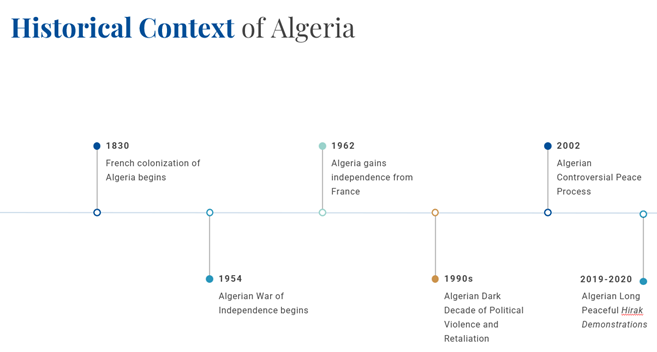
Algerian elders employed storytelling, poetry, and medihs (traditional melodies) to educate, transmit values, create and recall memories, and preserve their ancestors' traditions. These forms of indigenous knowledge formed a significant part of the DEPA Researcher’s informal upbringing in Algeria, passed down by grandparents who had never experienced the formal colonial education system.
However, colonialism disrupted these forms of knowledge through the inherited formal colonial system of education that marginalised the heritage of Algerian ancestors. Moreover, post-independence, the movement to 'de-Frenchify' Algeria through the Arabisation policy, which aimed to restore the Arabic language and culture, became emblematic of a deeper, long-standing identity struggle.
In this context, the study seeks to address a key question: How can the Algerian Art heritage, passed down through generations, foster an "inter-communal" space that encourages dialogue, imagination, and inclusivity among the Arab-Amazigh speaking communities in Algeria? To provide insights, the research explored the shared knowledge and values for peace as presented in the Algerian Art heritage, focusing on stories, melodies, and poetry.
Project Methodology

Beni Maoush Kabyle, Kabyle elder: Raid Zohra, Kabylian woman, Béjaïa Province, in Kabyle Traditional Attire. Fella Lahmar, DEPA researcher, descends from Guelma Province, Algeria.
Four participants from these linguistic communities, who migrated to other cities within Algeria, also took part in the research. The selection of participants and provinces was based on accessibility and the enrichment they could provide regarding the local art heritage related to educating for peace in their communities.

Mr. Bouhafs Bouamer, President of the Sha’anbeh Foundation for Rooting and Development in Ghardaia (Al-Sha'anba Lilta'seel Wal-Tanmiyah Bi-Ghardaia). The group discusses the traditional methods of promoting peace within Sha’anbeh community and across Ghardai.
To capture the complex relationships of educating for peace across multiple levels - individual, interpersonal, community, national, international, and global - this study adopts Recep Şentürk’s multiplexity framework. This framework was chosen due to its ability to encompass the multifaceted ontological, epistemological, and methodological nuances of examining such a social phenomenon while accounting for its interconnectedness across vertical and horizontal dimensions.
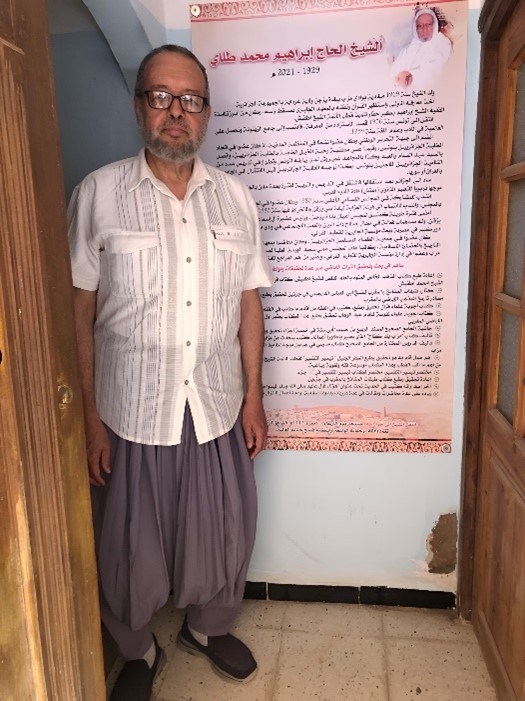
Saleh bin al-Haj Omar Trishin, an author and a poet, Ghardaïa, Mozabites Community, Cultural Heritage,Traditional Dress
The research methods employed to address this study’s research question were:
1) In-person, one-on-one, in-depth interviews with elders, community members, artists, educators from both lower and higher education sectors, and mosque imams.
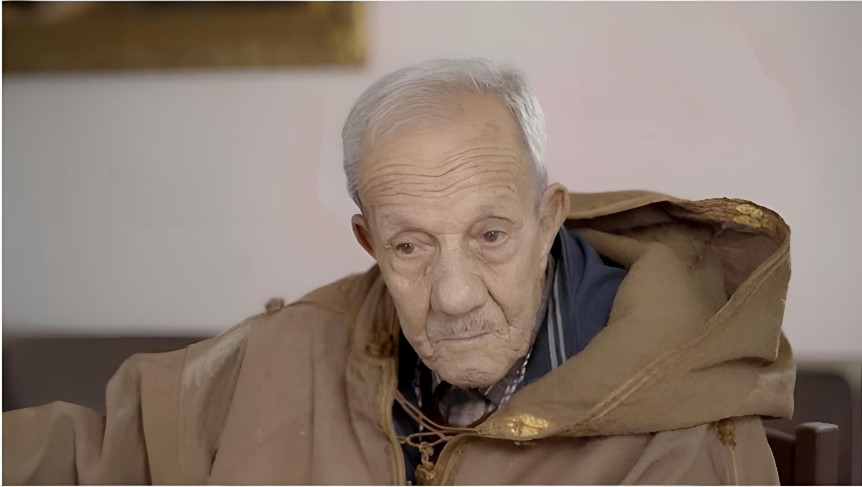
Dhib Hamid ben Muhammed. An elder from the Chaoui community in Aïn Beïda discusses the cultural methods of promoting peace within Chaoui culture.
2) Jama'ah group (JG) discussions (the assembly or traditional gathering): Functioning similar to focus groups, these discussions held respect for local customs, values, and sensitivities. The format and etiquette of these sessions were tailored to the community's traditions. Each group consisted of 4-7 people. The lead and etiquette of these discussions were tailored to respect local customs, values, and sensitivities.
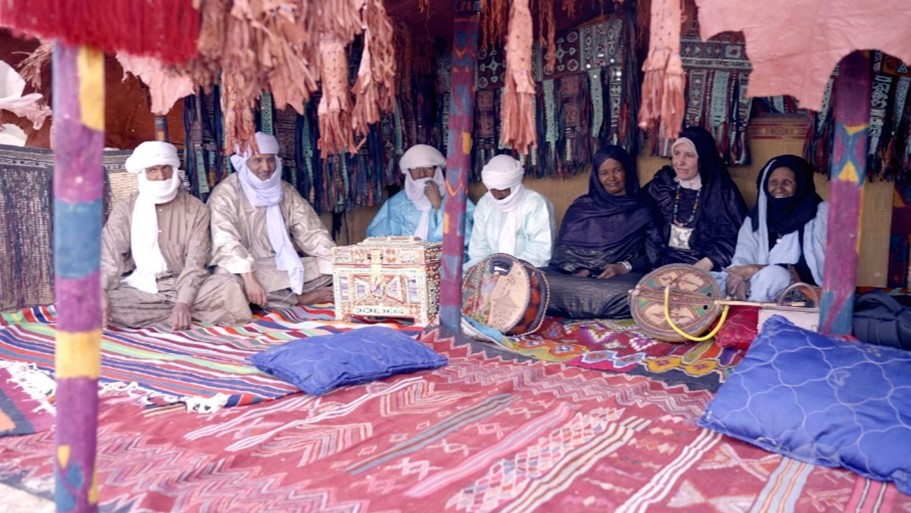
A traditional Tuareg Jama’a (group) gathering for peace-making, accompanied by the highly regarded Tuareg’s Imzad music, poetry recitation, and storytelling.
Both the individual interviews and JG discussions emphasised the Algerian art heritage as an educational tool for peace. Traditional stories, medihs (traditional melodies), amthal (proverbs), and traditional art objects were used to stimulate further in-depth discussions around peace values within their communities.
Sources of Interview Data
Document Analysis: Textbooks
The most recent editions for the 2023-2024 academic year have been reviewed and compared, revealing only minor changes from the original versions of the second-generation curriculum textbooks.
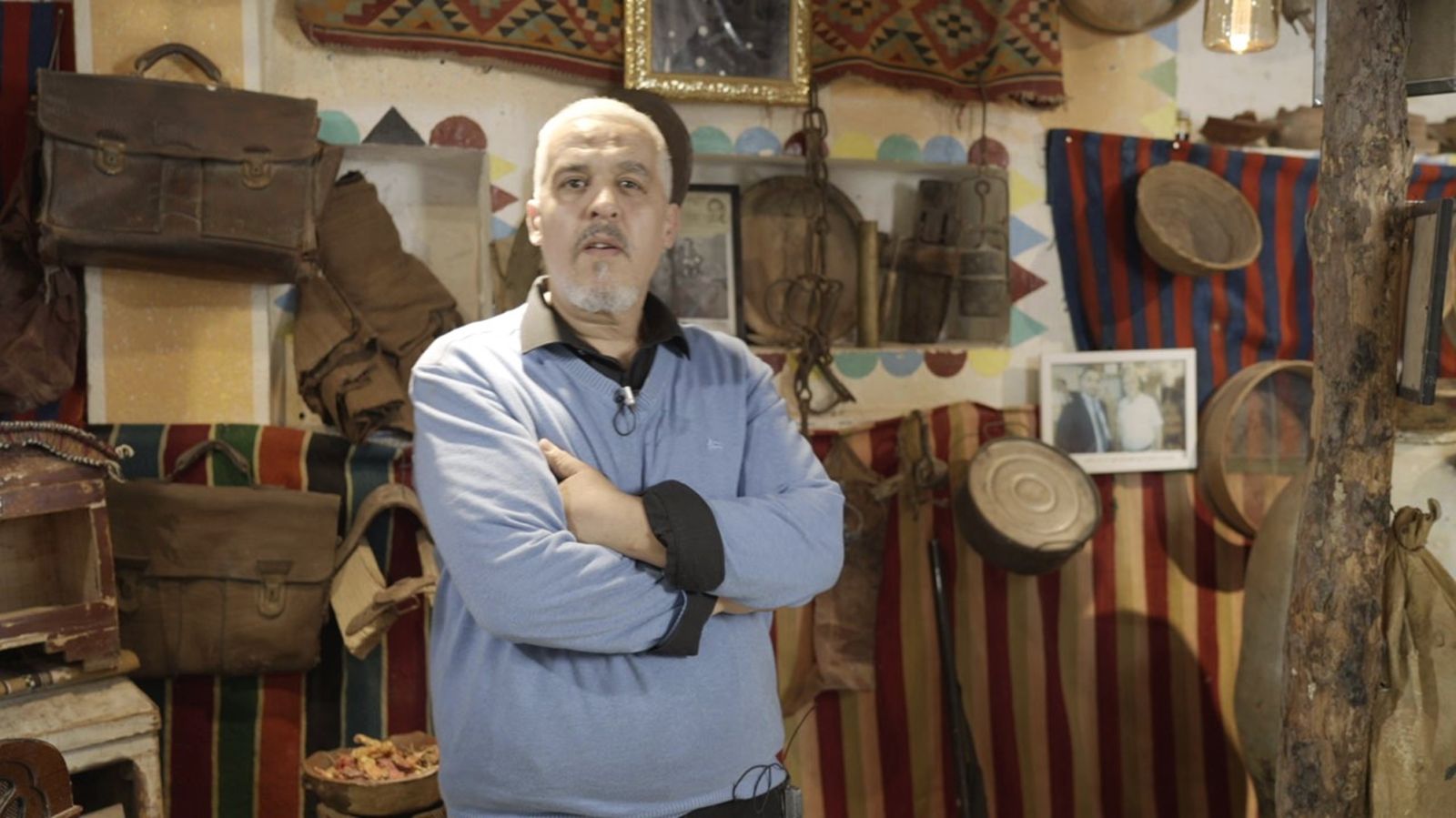
Ahmed Ilihoum, Owner of 'café Ennoui ' in Aïn Beïda, Oum El Bouaghi. The café is also dubbed a personal museum where every corner is filled with various objects reflecting the Chaoui culture.
Data formats included:
- Digital audio recordings of interviews.
- Textual transcriptions of individual interviews and group discussions.
- Digital video recordings for those consenting to video, capturing their oral presentations and custom traditions.
- Digital still images of any art objects subjects chose to share.
- Field notes taken by the researcher.
Project Highlights
The DEPA project has been an enlightening exploration for the researcher, illuminating the depths of Algeria's rich cultural heritage. This exploration of ancestral art and traditions has fostered a renewed appreciation for inclusivity and the wealth of diversity that is missed in the researcher’s Algerian formal schooling journey from primary school to university.
Key insights from this research journey include:
- Unity in diversity: Despite the country's vast geographical landscape and apparent identity sensitivities, the exploration revealed foundational values within the art heritage of communities from both North and South, highlighting a shared cultural essence that transcends ethnic and linguistic differences, epitomising unity in diversity.
- Deep cultural pedagogical significance: Algerian art heritage in this study, spanning traditional stories, melodies, and poetry, holds significant weight in conveying peace values across communities. This underscores the need to preserve and champion ancestors’ knowledge.
- Endangered oral traditions: The study access journey demonstrates how challenging it is to find elders who are still able to share their ancestors’ heritage and community wisdom. Elders possess a wealth of knowledge that has persisted across generations but remains largely untapped in educational resources. Alarmingly, the risk of losing this invaluable oral heritage grows as these elders pass on, emphasising the urgency of documentation and preservation.
Educational Resources
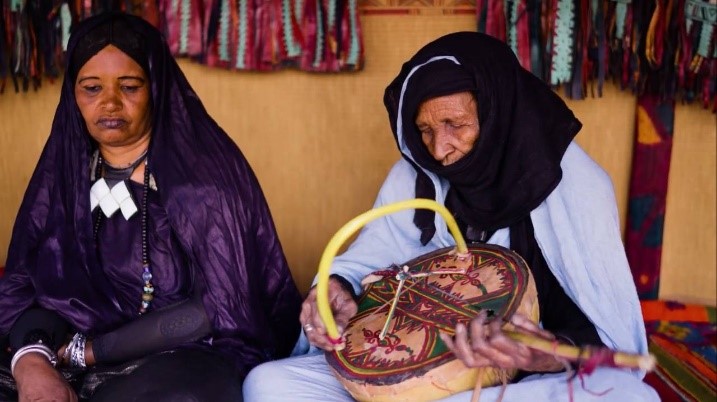
Renowned Imzad players, Khoulene Alamine (mother) and Fatimati Alamine (daughter).
The project has resulted in a range of diverse educational resources, including music clips, melodies, podcasts, animations, and academic literature. These resources include the following open educational resources that communicate cultural heritage:
- Four short film clips of traditional melodies from Beni Maouche, a Kabyle-speaking commune in northern Algeria in the Béjaïa Province.
- A short film clip of Tuareg traditional and highly respected Imzad music, featuring the distinct 'Burdah' melody performed by Alamine Khoulen, the most esteemed senior Imzad artist from the Tuareg area in the Tamanrasset region. You can access the clip in English or in Arabic.
- Two versions of a sand animation clip narrating the Tuareg’s 'Amamma-Landalias' story. The legend exhibits a sample of storytelling in the Tuareg community as a traditional educational resource to open space for learning and critical discussions. You can access this clip in English or in Arabic.
- An illustrated story centred on a notable Algerian shared legend.
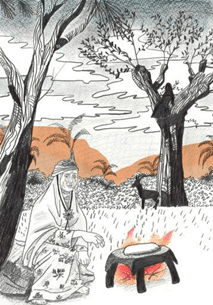
A scene for Satouta character from an Algerian legend. Illustrated by: Afnan Dridi
5. A podcast of Tuareg’s Amamma-Landalias, a traditional legend from the Tuareg community in the Tamanrasset region.
Impact
The study has laid the groundwork for various multimedia outputs, including six short film documentaries, two versions of an animated story, and one illustrated legend written in both Arabic and English versions, which can have a broader outreach beyond academic circles, including :
- Educational impact: The project's educational resources can be pivotal in teaching younger generations about Algerian diverse cultural heritage and its significance in promoting peace across communities. These resources can be integrated into school curricula or used in extracurricular activities to instil values for peace, conflict resolution, and leadership skills.
- Influence on policy and curriculum: The educational outputs can influence educational curriculum development to consider more diverse indigenous knowledge, art, and pedagogies. This potentially can lead to a more inclusive and holistic education system.
- Cultural preservation: By documenting and sharing the Algerian art heritage, the project contributes to the preservation and revitalisation of ancestors’ art heritage and linguistic diversity. This can help combat cultural loss and ensure that these art forms are carried forward by future generations.
- Bridging gaps and promotion of dialogue: By encompassing diverse linguistic communities and regions, the study aims to enhance mutual understanding, foster inter-communal dialogue, and promote unity in diversity. This research positions art as a powerful medium to address contentious topics, identify shared values, and champion peaceful coexistence among Algeria's varied linguistic communities.
Research Outputs
1. Published works and works submitted in the editorial process (by Oct 2024)
- Lahmar, F. (2024). Educational reform in Algeria: Dilemmas of globalisation, equity, and decolonisation. In: Akgün, B., Alpaydın, Y. (eds) Global agendas and education reforms. Maarif Global Education Series. Palgrave Macmillan, Singapore. https://doi-org.libezproxy.open.ac.uk/10.1007/978-981-97-3068-1_1
- Lahmar, F. Policy Report (2024): Deepening Cultural Understanding in Algerian Civic Education Textbooks: A Policy Recommendation Report; submitted to the Principal Investigator Professor Parvati Raghuram, to be presented at The African Union, the 37th AU Summit, Feb 2024, Ethiopia.
- Lahmar, F. (2024, in the editorial process). Towards a dialogical process for decolonising ethical reasoning in Algerian context. The Geographical Journal. Special Issue: Decolonising Ethical Reasoning in Research: A Reflexive Dialogical Process.
- Lahmar, F. (2024, in the editorial process). Storytelling and poetry as pedagogical approaches to educating for peace in Algeria's Tuareg community. In Arts and Heritage in Education for Peace: Insights from Africa. Development Studies Series. Routledge
- Lahmar, F. (2024, in the editorial process). From Aesthetic appreciation to behavioural transformation: Al-Ghazali's educational framework. Journal of Islamic Ethics. Brill.
2. Conference Presentations
- Lahmar, F. (27th August 2024, ECER 2024, Nicosia). Storytelling and poetry as pedagogical approaches to educating for peace in Algeria's Tuareg community (Paper). Theme: Education in an Age of Uncertainty: memory and hope for the future. The European Conference for Educational Research (ECER), 27th-30th August 024, in person at the University of Cyprus, Nicosia.
- Lahmar, F. (05th March 2024, presented paper, Doha). From Aesthetic Appreciation to Behavioral Transformation: Al-Ghazali's Educational Framework” for the symposium on "Ghazali on Education: Contemporary Practical Applications from an Enduring Legacy", March 05-06, 2024, in Hamad Bin Khalifa University, Doha, Qatar. [Decolonisation of theoretical frameworks]:
Ghazali on Education: Contemporary Practical Applications from an Enduring Legacy - Day 1 (youtube.com) (see from 04:48 minutes) - Paper. (2023, online). DEPA Paper: Educating for Peace in Algeria through Traditional Art Heritage. Panel Webinar: Decolonising in Conversation: Decolonising Education for Peace in Practice, 21 June 2023. Open University, UK
- Lahmar, F. (Oct 2022, online Conference Presentation). Valuing the Algerian arts heritage in teacher education programmes, at Conference: Scholars of Educational Thought in Algeria. Higher School for Teacher Education – Bouzareah. Research Laboratory of Education and Epistemology, in collaboration with the Department of Philosophy, Algeria.
- Paper. (Oct 2022, online). Keynote Speaker. Decolonising Algerian Social Research Ethics: Opening up the debate. The Algerian PhD Society in the UK, APS-UK Society' 2022 Conference: Theme: Ethical Challenges in Research.
3. In Production
- One short film documentary highlighting the key findings of this study across the various participating communities.
- An illustrated story centred on notable legend shared across various Algerian communities, showcasing the heritage of local communities and emphasising values of peace.
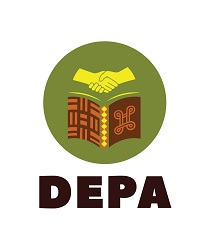

.JPG)
